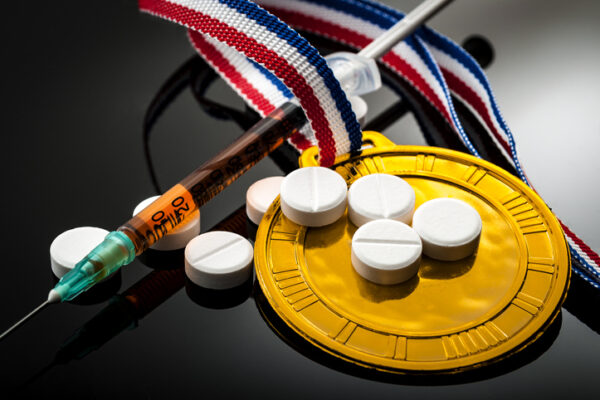In the early morning of Nov. 9, 2015, a 17-old swimmer named Qing Wenyi died in her athletes’ dormitory in Beijing. Within three hours, her grieving parents were said to have refused an autopsy, and Qing was cremated within 48 hours.
The physiological collapse that had taken the life of this teenager was, in effect, a state secret. But the Chinese website QQ.com reported that her death was likely the result of “a heart condition associated with [performance-enhancing] stimulants.”
Qing’s death touched off immediate speculation about whether the notorious systematic state doping of the 1990s had ever been dismantled at all.
In 2017, a former doctor for the Chinese Olympic team, Xue Yinxian, said that more than 10,000 athletes took part in a systematic doping program that contributed to every Chinese medal won in international competitions in the 1980s and 1990s. “People believed only in doping,” she said, “anyone who took doping substances was seen to be defending the country.”
In 1995, a group of ten elite female runners accused their famous coach, Ma Junren, of physical abuse and of having “forced us into using large quantities of banned drugs for years.” One of these women, Wang Junxia, had set unimaginable world records in 1993.
There is no reason to believe that state-sponsored doping was halted after the 1990s. The architects of state-sponsored doping schemes do not have conversion experiences that suddenly inspire them to produce clean athletes. In fact, there have been more than 80 positive doping tests among Chinese swimmers over the past 25 years, along with some stellar performances.
The otherworldly performance of the 16-year-old female swimmer Ye Shiwen at the 2012 London Olympics stunned the other swimmers, male and female. “No one really understands how that happened,” said Canadian swimmer David Sharpe. The swimming coach Zhou Ming, banned for life for doping athletes in the 1990s, was training Chinese swimmers for the 2008 Beijing Olympic Games and was reported to be active as late as 2016.
As many of us watch the Olympic Games unfold, we should remember that every ambitious authoritarian regime of the post-1945 era has operated a state-sponsored doping system: East Germany, the Soviet Union, Russia and China.
The combination of a dictator’s command authority, corruptible medical scientists, and the ease of acquiring anabolic steroids makes it easy to put in place a system that administers performance-enhancing drugs to hundreds or thousands of athletic children and older adolescents. One China expert said in the 1990s that there is a whole system of guinea pigs, girls experimented on with drugs so that the more talented kids could get gold medals on big occasions. Only central coordination can choreograph the doping treatments and unexplained movements of minors who have been removed from their parental homes to train for the athletic glory of China.
But there is a deeper scandal. The international bodies charged with investigating evidence of state-sponsored doping schemes, the International Olympic Committee (IOC) and the IOC-controlled World Anti-Doping Agency (WADA), either ignore these reports or make nothing more than vague promises to investigate.
They routinely fail to investigate rule-breaking sports powers like Russia and China so it is law enforcement and journalists who take up the slack. Police forces and prosecutors broke open the 1998 Tour de France doping scandal. It took the FBI and the U.S. Department of Justice to get indictments and convictions of the financial criminals running FIFA in 2015. And it was the German journalist Hajo Seppelt who exposed the Russian 2014 Winter Olympics doping scandal.
In recent years the IOC has twice relied on the world’s major dictatorships, Russia and China, to fund the Olympic Games. Even after the Sochi state-sponsored doping scandal had humiliated the IOC and WADA, they allowed Russia to send hundreds of athletes to the 2021 Tokyo Summer Games and now to the Beijing Winter Games. And, just recently, the influential IOC member Dick Pound stated on NPR that the IOC now prefers authoritarian Olympic hosts to inefficient Western democracies.
In other words, the IOC’s traditional indifference to state-sponsored doping is now official policy.
John Hoberman is a professor of Germanic studies at The University of Texas at Austin. He is the author of “The Olympic Crisis: Sport, Politics, and the Moral Order” (1986) and many other publications on sports and politics.
A version of this op-ed appeared in The Hill.




